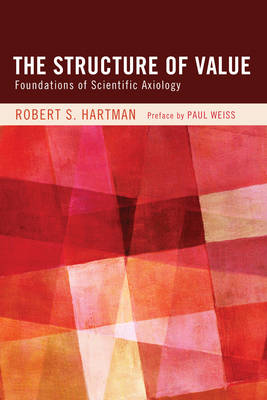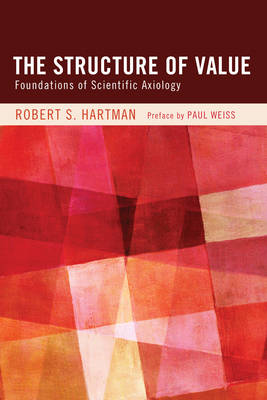
- Afhalen na 1 uur in een winkel met voorraad
- Gratis thuislevering in België vanaf € 30
- Ruim aanbod met 7 miljoen producten
- Afhalen na 1 uur in een winkel met voorraad
- Gratis thuislevering in België vanaf € 30
- Ruim aanbod met 7 miljoen producten
Zoeken
Omschrijving
Description: Hartman's revolutionary book introduces formal orderly thinking into value theory. It identifies three basic kinds of value, intrinsic goods (e.g., people as ends in themselves), extrinsic goods (e.g., things and actions as means to ends), and systemic goods (conceptual values). All good things share a common formal or structural pattern: they fulfill the ideal standards or ""concepts"" that we apply to them. Thus, this theory is called ""formal axiology."" Some values are richer in good-making property-fulfillment than others, so some desirable things are better than others and form patterned hierarchies of value. How we value is just as important as what we value, and evaluations, like values, share structures or formal patterns, as this book demonstrates. Hartman locates all of this solidly within the framework of historical value theory, but he moves successfully and creatively beyond philosophical tradition and toward the creation of a new value science. Endorsements: ""The Robert S. Hartman Institute is very pleased to be able to reprint Dr. Hartman's seminal work on Formal Axiology. Making this important book available again will allow serious thinkers about values to have access to the foundations of the science of value and will stimulate the continued enhancement, exposition, and development of the theory, which, we hope, will help make better people and the world a better place."" -Arthur R. Ellis, Ph.D., Chair of the Board, Robert S. Hartman Institute ""I've never read a book on values that gave me more food for thought . . . fantastically ingenious and challenging."" -Charles Hartshorne, University of Texas ""In reading this book, one is impressed by its grand design and possibility of infinite applications . . . Professor Hartman's essay is indeed worthy of attention."" -Philosophy and Phenomenological Research ""Hartman, recognized authority in value theory, presents what may be his magnum opus . . . He argues with verve, clarity, ingenuity, and erudition . . . The preliminary chapters on the nature of philosophy and science and on the historical background of his views will be stimulating and of some interest to the reading public."" -Choice About the Contributor(s): Robert S. Hartman (d. 1973) was Research Professor of Philosophy at the University of Tennessee and the National University of Mexico. His lifelong quest was to answer the question, ""What is good?""--and to answer the question in such a way that good could be organized to help preserve and enhance the value of human life. He believed that he had found this answer in the axiom upon which he based his science of axiology: ""A thing is good when it fulfills its concept.""
Specificaties
Betrokkenen
- Auteur(s):
- Uitgeverij:
Inhoud
- Aantal bladzijden:
- 404
- Taal:
- Engels
Eigenschappen
- Productcode (EAN):
- 9781610978422
- Verschijningsdatum:
- 15/12/2011
- Uitvoering:
- Paperback
- Formaat:
- Trade paperback (VS)
- Afmetingen:
- 137 mm x 213 mm
- Gewicht:
- 498 g

Alleen bij Standaard Boekhandel
+ 135 punten op je klantenkaart van Standaard Boekhandel
Beoordelingen
We publiceren alleen reviews die voldoen aan de voorwaarden voor reviews. Bekijk onze voorwaarden voor reviews.











